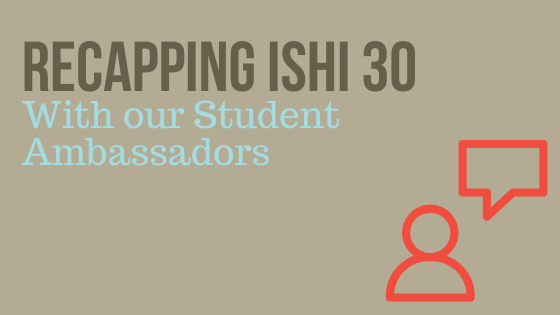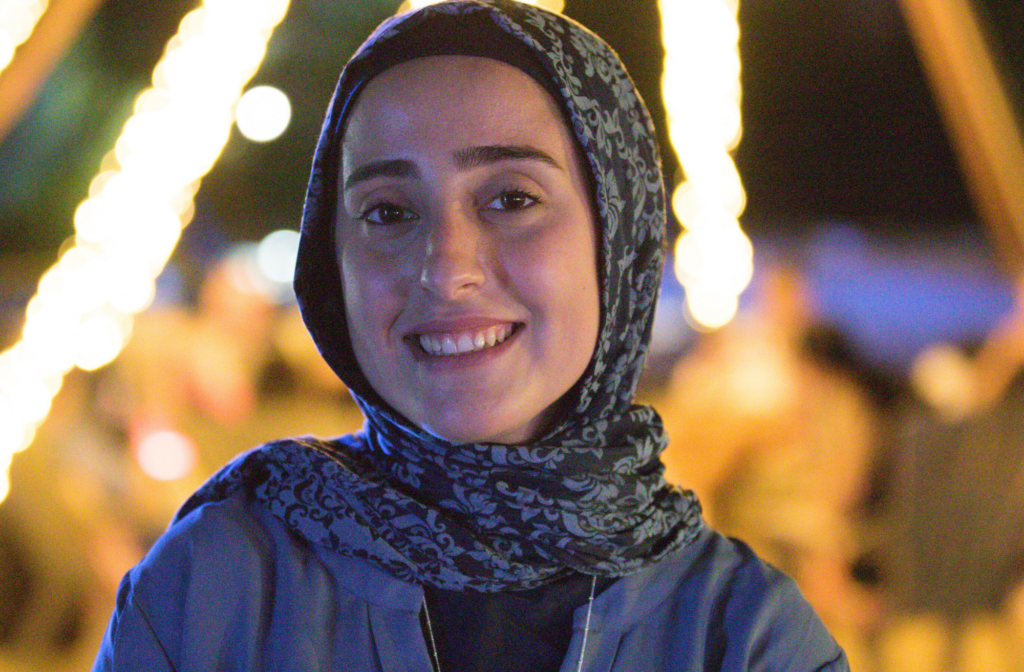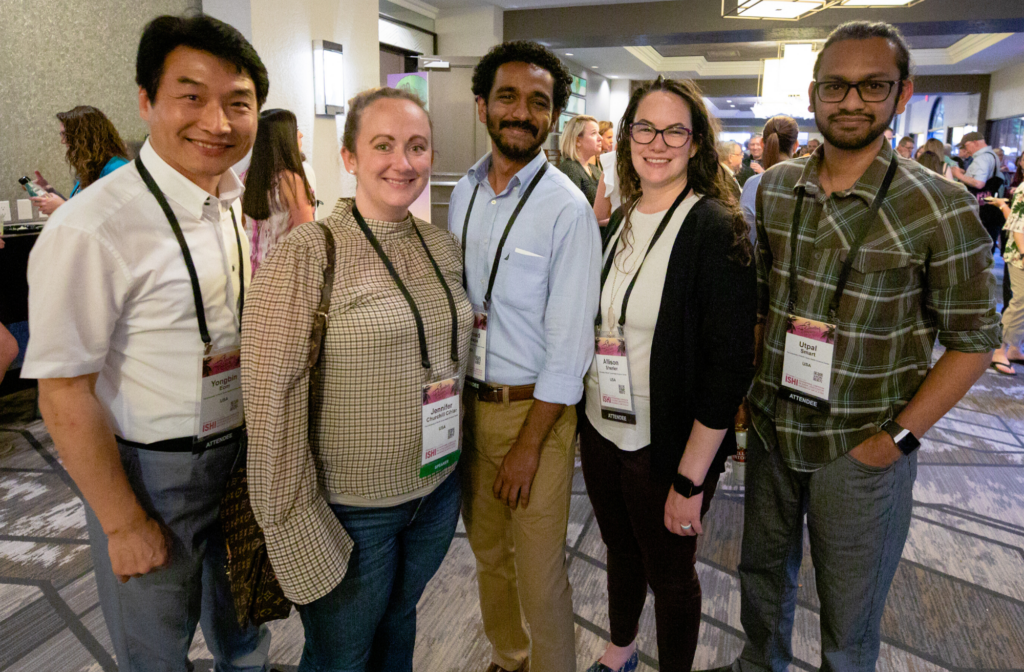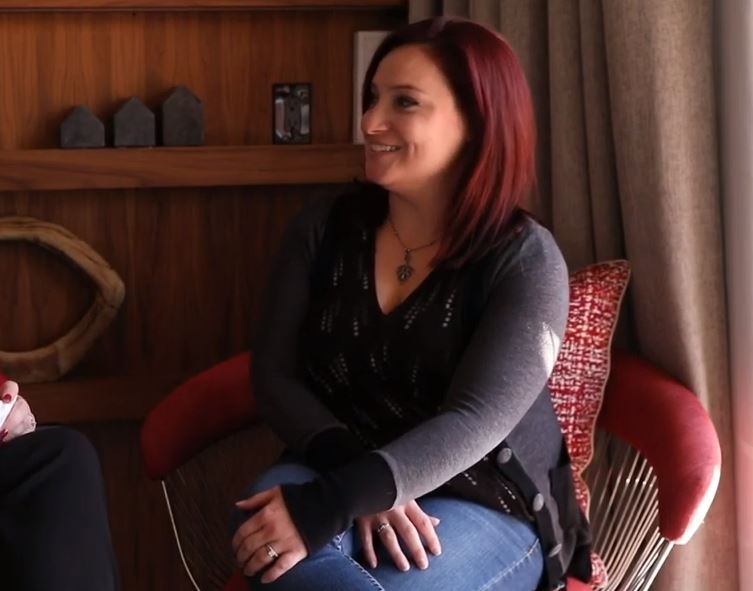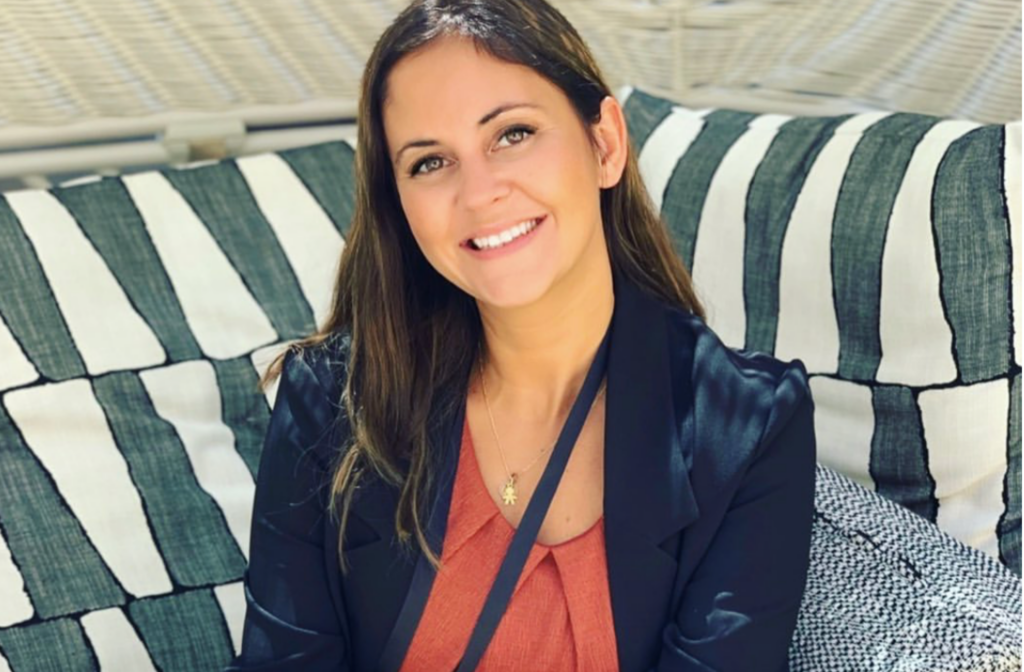The 30th International Symposium on Human Identification Keynote Speaker, Paul Holes, related the chilling story of the case that dogged him for over 20 years—the notorious Golden State Killer, who committed over 100 burglaries, more than 50 rapes and at least 13 murders from 1974 to 1986. 2019 also saw continued interest in the power of genetic genealogy, and included the unveiling of new DOJ policy on how it should be used, with other presentations focusing on Rapid DNA, emerging technologies in the field, massively parallel sequencing, and more. In this interview, our ISHI 30 Student Ambassadors recount their experience at the conference.
What were your first impressions of the conference?
Mirna: Attending ISHI was always on my list. As a student, I had to work hard on my project so I can submit an abstract. Little did I know, I was honored not only to attend ISHI or to present at ISHI but also to be an ambassador as well. The moment I arrived to check-in, I knew that it will be once in a lifetime experience (that hopefully would be repeated every year). I was impressed by the organization of each and every details you can think of: time management, logistics, speakers, activities, interviews, exhibits, banners, theme, food, reception …
Allison: Palm Springs was an absolutely gorgeous location for this year’s ISHI conference and the theme stayed in line with all things Palm Springs. The set up for check-in was fantastic and the staff were absolutely amazing. The glimpse back into forensic genetics history was fun and I was in shock that there were materials from the O.J. Simpson trial out for people to handle. It was absolutely crazy to get to touch things from that case. I am so honored I was able to attend this year.
Rachel: I was excited to learn that ISHI 30 was to be hosted in Palm Springs. I had never experienced the California desert and I must say, it did NOT disappoint! The resort atmosphere was perfect to actively facilitate collaboration, networking, and the making of new friends within the field of forensic genetics.
Fabiana: The conference was mind-blowing, I am so grateful I had the chance to participate as student ambassador. I met so many researchers and even those experienced and in the field for many years showed excitement to be there. It was amazing.
How does ISHI compare to other meetings that you’ve been to?
Mirna: I have been to other conferences in the forensic field, but most of them include more than one concentration: forensic chemistry, biology, csi, impressions … What I liked the most about ISHI is that it focuses on forensic DNA which gave me a satisfaction in the knowledge I got in this area that is by itself huge. Yes, it is important to know about other fields in forensics but also it is very important to get an in-depth focus on your area of research, which I found at ISHI. I also liked the fact that you don’t miss a talk because of parallel sessions as each slot has one speaker/panel going on at a time.
Allison: ISHI has a great mix of researchers and analysts. It’s the perfect set up for me to learn about the current research going on in forensic genetics, but also talk to analysts about what they think about the research that I am doing. ISHI also has a great balance of time spent listening to speakers and time to network. I feel like most other conferences I have been to have a hard time balancing this. It is either too much and you get bored, or it is too little and you feel rushed. ISHI has a fun and relaxed vibe while also being a very informative conference.
Rachel: Many conferences attempt to merge all things forensic into a short period of time, which often results in attendees missing presentations and opportunities. ISHI is an impressive, well-balanced conference where oral presenters, poster presentations, and exhibits are showcased in a way to best highlight the emerging technology and research within the field.
Fabiana: This was my first conference therefore I cannot compare with others, but according to the program and talks offered form ISHI and other conferences, I can say this is the only one focused entirely on forensic DNA offering a whole week of workshops and talks.
What was your favorite part of the conference?
Mirna: My favorite part of the conference were the interviews I did. I got the chance to be part of #womeninstem as well as interviewing one of my favorite scientists, Dr. John Butler. This opportunity actually made me discover my love to combine science, mass media and communication.
Allison: Networking and visiting with people I have met in previous years is my favorite part. We cannot move forward as an industry if we do not communicate and make friends with other people doing the same work. The forensic genetics community has a special dynamic, we will go farther and improve faster if we all work together and not compete with each other.
Rachel: My favorite aspect of ISHI is witnessing the progression of research, whether this is a student’s thesis project where I get to learn more of what they have discovered year-to-year or something new and novel that it just beginning to move the field forward. Additionally, I enjoy seeing old friends (often with ISHI being the only time I get to see them each year), networking with local organizations or industry, and most certainly, being able to actively engage in scientific “think tanks.”
Fabiana: I found all the topics of the conference very interesting but the talks and workshop about genealogy really surprised me. The workshops with the material and the practical exercise also was a section I really loved.
Did you make any new connections that will assist in your research?
Mirna: During my poster presentation, I met DNA analysts who were interested in my research. I was happy to discuss opportunities for collaborative studies with crime labs. It was through ISHI that I spoke to speakers in my area of research and had the chance to benefit from their knowledge.
Allison: My topic area being so narrow, sadly this year I did not meet anyone that was interested in collaborating, but I am sure as the area of human identification using the microbiome expands there will be more people to collaborate with in order to help improve MPS kits.
Rachel: Absolutely! My research focuses on the development of novel methods for typing highly degraded DNA. Accompanying the use of these new molecular methods for challenged remains are numerous applications that have the potential to translate to various other areas within the field of forensic genetics. I greatly enjoyed actively talking with all attendees about my research and its impact across the field.
Fabiana: Some researchers stopped by my poster session, and were curious about my research. Although only a few of them are working on my same topic, they asked me to keep them updated on my experiments.
What is one thing that you learned while at the conference?
Mirna: It is hard to confine all my days at ISHI in just one thing that I learned as each moment was a learning experience by itself. But I would say that the main thing I learned is that as a student, I am on the right track as I loved each and every story I heard. I was thrilled to hear how throughout the years, forensic DNA has developed and that I was only 1 year old when CODIS was established.
Allison: Only one thing?? Surely everyone who went to ISHI learned more than one thing. What I found the most interesting and exciting was the work that the DNA DOE Project is doing to help identify individuals using genetic genealogy. It is amazing how much good genetic genealogy has done for families that have missing loved ones.
Rachel: Although I had the opportunity to learn so much at this year’s ISHI conference, one presentation that really stuck in my mind was the use of isotope analysis to develop a biological profile and determine the place of origin in missing persons cases. This form of investigation has the potential to provide a considerable amount of information in cases that are often limited or where there are no longer any investigative leads. Isotope analysis serves as a bridge to the past identifying an individual’s region of birth (based on certain isotopes) as well as what environment that individual was around prior to their death. This research is fascinating and holds the ability to cross a variety of applications.
Fabiana: Listening to all the great talks, I learned how collaboration between researchers is fundamental to coordinate steps of investigations, for example, or solving critical criminal cases.
What are your biggest takeaways?
Mirna: My biggest takeaways are that there is no limit to how much we can learn or how much we can serve. Because each family/person deserves to have a closure, we have to constantly work on advancing this field. Last but not least, it is true that forensic science is exponentially growing but we can still make it better.
Allison: The forensic genetics industry is changing and with that change, there is a lot to do in crime labs and in the court systems to make sure we are using the most informative genetic information available while also keeping people’s personal information safe.
Rachel: Currently, there is a considerable push toward using genetic genealogy to solve crimes. Prior to attending ISHI 30, I was unaware of the major policies coming into place concerning the use of databases for this approach to gaining investigative leads. I was pleasantly surprised by the community’s proactive attitude to fund such actions and establish policies to protect the individual’s genetic information and privacy.
Fabiana: The determination; the strong will to never give up. The stories I got from the speakers and their talks gave me an extra boost, a greater awareness of what I am doing and why, increasing my level of optimism.
Do you have any advice for other students or attendees considering attending ISHI?
Mirna: I highly recommend this conference to other students because I have no doubt that it will be beyond what is expected. Throughout the whole conference, I was on the edge of my seat listening to real caseworks. I was honored to meet experts from the federal, local and international crime labs as well as researchers from other institutions. As students and new scientists in the field, it is very important to explore and build connections. Who knows? Maybe you meet your future boss.
Allison: This is a great conference to attend to find Ph.D. and post-doctoral positions. The number of people from private, public, and research labs is fantastic for networking. If I had to pick only one meeting to attend each year, ISHI would definitely be my choice. There is just so much information and the people are so friendly to new people in the industry.
Rachel: If you are able to attend ISHI…GO! ISHI is the top conference to attend as a student or young investigator seeking a profession within the forensic genetics community as well as finding lifetime friends and collaborators. Additionally, the position of ISHI Ambassador offers students funding to attend the conference where they can experience networking and exposure to research.
Fabiana: First prepare to be surprised and to meet great researchers from all around the world. My only advice is that for everyone working in forensic DNA, ISHI must be the meeting to attend. If you have any doubt, go, and you will realize once the conference starts.
WOULD YOU LIKE TO SEE MORE ARTICLES LIKE THIS? SUBSCRIBE TO THE ISHI BLOG BELOW!
SUBSCRIBE NOW!

